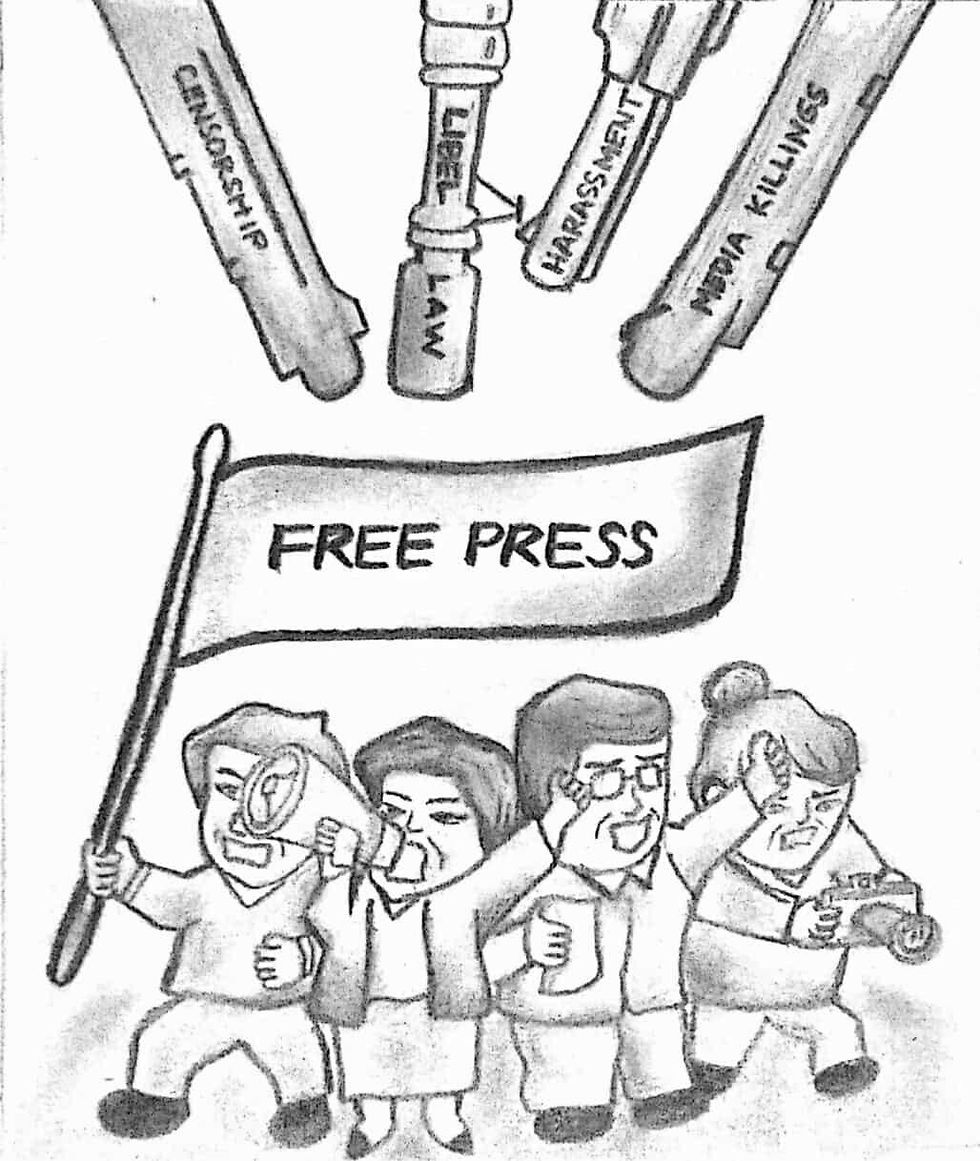Amid crippling constraints
- ATF News Online

- May 3, 2019
- 3 min read

Pursuing the truth has become a lot more difficult now that lies continue to infiltrate society.
Journalists play a crucial role in the fulfillment of such endeavor. Guided by the profession’s basic tenet of truth-telling, journalists have actively performed their duty to expose lies, deceit, and disinformation that seek to create disorder and chaos. Fulfilling this duty, however, comes at an expensive cost, with the lives of media practitioners being the highest price to pay for the job.
It has been almost 10 years since the Ampatuan Massacre killed 58 people including 32 journalists, yet not a single individual was convicted for the case. As justice remains hanging loosely for about a decade, the culture of impunity continues to prevail. Being the single deadliest event for journalists, this bloody incident even led the Philippines to be declared as the most dangerous country for journalists in Southeast Asia, based on a Southeast Asia Media Freedom report.
Although it may be sad to hear, the country rightfully deserves the tag, as media killings continue to happen. In the first three years of President Duterte’s rule alone, a total of 12 journalists had been killed. However gruesome the picture may already be, this is just one aspect of the harsh conditions the country offers for journalists.
The media situation further worsened under an administration so dedicated not only to silence its critics but can go insofar as to kill even the innocent.
Just recently, the Palace released a matrix linking three media groups and one lawyers’ organization to an alleged plot to oust the president. This move is a clear attempt to paralyze the media, as they try to disorient the public into thinking that journalists should not be trusted and that efforts made by journalists to expose the truth are mere smear campaigns against the government. Such action should not be simply dismissed as a terrible lie but must be responded to with utmost condemnation.
What is more troubling is that even inside the industry, presidential appointees are able to manipulate journalism as a tool to advance the interests of the administration. For instance, special envoy for international public relations Dante Ang, who owns The Manila Times, published an article on the matrix issue despite the lack of sufficient evidence to support the malicious claims of the said document.
Recognizing the tight situation the media has found itself in, most practitioners often resort to a compromise to strike a balance between maintaining the profession’s integrity and keeping the business alive. However, this does not work every single time.
Resigned Managing Editor Felipe Salvosa II’s decision to leave The Manila Times upon the release of the matrix story should serve as a reminder for journalists to know when to choose principle over business, for they need not conform within the system all the time. Amid the constraints, the journalist must always uphold the principles upon which the profession is built.
Media practitioners are hereby called to stand their ground. As injustices abound, it will never be enough to serve as a mere watchdog passively witnessing the narrative unfold; for it is through the active involvement of citizens, including journalists, that change can materialize. It is through the unity of people that the press can be defended from the threats it is confronted with.
On the other hand, alternative media organizations also experience suffering in the form of distributed denial of service (DDoS) attacks. Known for being a hard-hitting critique of the administration, websites of Bulatlat and other alternative media networks were taken down by overwhelming data traffic — also known as DDOS attacks — that heavily hampered their operations. This instance is a clear violation of press freedom.
As long as there are hindrances that prevent media from fulfilling their tasks, they are not truly free. As long as justice remains elusive for all slain journalists, and threats, intimidation, and harassment remain present, the fight for press freedom is far from over. As long as there are media organizations in danger of losing their licenses for being critical of the administration, journalists must continue to fight, no matter how painstaking it may be.
The value of journalism becomes all the more important now that the 2019 midterm elections are coming closer. Shedding light on the truth about political candidates paves the way for a more informed citizenry -- one of the primary things that journalism seeks to create.
Today, as we celebrate Press Freedom Day all over the globe, may we be reminded to not just fight for a free press when convenience kicks in. Let this day serve as a reminder that the attainment of a free press is still a work in progress, and this can only be achieved through the continued and tireless assertion of the people for the rights that journalists must freely enjoy.
A free press is a prerequisite to a free nation. At the end of the day, only when the press is free can democracy flourish.



Comments